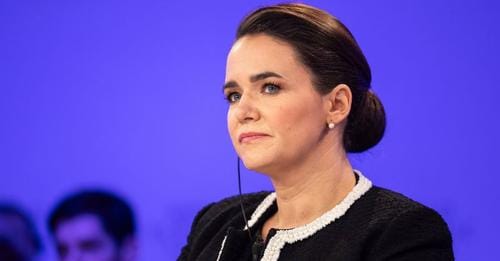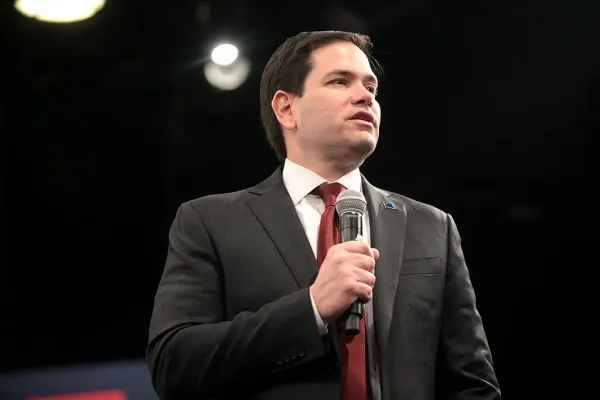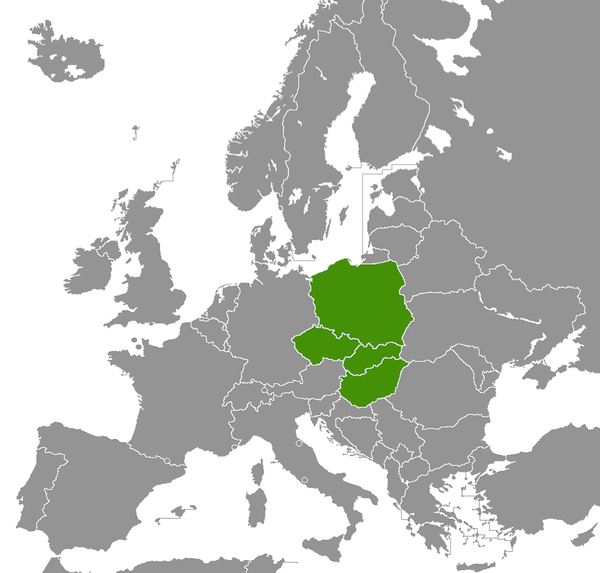
Hungary rocked by presidential resignation
Hungarian President Katalin Novak resigned on live TV on Saturday evening, in connection with her controversial pardon issued last year for a man convicted of covering up child sexual abuse.
When Pope Francis I visited Hungary last April, Novak gave clemency to the deputy director of a state-run children’s home who coerced retractions of abuse claims against his boss. The director of the children’s home was sentenced to 8 years of jail time for sexually abusing underaged boys from 2004-16. His deputy was sentenced to a 3-year prison sentence before he was named as 1 of 25 pardoned to mark the papal visit.
Thousands took to the streets of Budapest on Friday to protest Novak remaining in her position as head of state. Amid the unfolding scandal, Hungary’s government, led by Prime Minister Viktor Orban since 2010, mainly with a supermajority, was forced into a rare climbdown, and Novak resigned.
Child protection cornerstone government policy
In recent years Orban’s Fidesz party has passed “child protection” laws that it says defend family values, but that critics say conflate homosexuality with child abuse. When a recent article in local independent outlet 444 revealed Novak’s controversial choice for a pardon, public clamour for her resignation increased.
Orban’s one-time family minister turned head of state said in a televised address on TV on Saturday, 10 February, that “I decided to grant a pardon last April, believing that the convict did not exploit the vulnerability of the children whom he had overseen.
“I erred, as the pardon and the lack of reasoning were conducive to triggering doubts about the zero tolerance that applies to paedophilia,” she said. Novak offered apologies “to those I may have offended and all the victims who might have felt that I did not stand up for them”.
MPs now have 15 days to accept Novak’s resignation. The decision could be taken on 26 February, the first day of the House spring session, Fidesz caucus leader Mate Kocsis said. A new head of state must be elected within 30 days, so Hungary would have a new president by the end of March, he added.
Ex-justice minister Varga also falls on sword
Former justice minister Judit Varga, who signed off the pardon, also resigned as an MP and from her role leading the European elections drive for Orban’s ruling Fidesz party.
Varga wrote: “Since the regime change, the minister’s countersignature is required for an individual presidential pardon for the validity of its decision is judicial. I take responsibility for countersigning the president’s decision. I am withdrawing from public life, resigning as an MP, and also as leader of the European Parliament MEP list.”
Varga’s ex-husband went rogue on Sunday evening, having already criticised the Orban regime in two Facebook posts. He told independent outlet Partizan that he had long been thinking about their content, but couldn’t hit publish while his now ex-wife held a leading position.
Magyar said he is a longstanding supporter of the “national side” of Hungarian politics and counts the head of the Prime Minister’s Office Gergely Gulyas as a long-standing friend.
Varga’s ex-husband gives insider perspective on Fidesz power struggles
As an insider Magyar said he has frequently criticised Fidesz to Gulyas and Fidesz policy chief Balazs Orban, who is not related to the PM. He was critical of internal party power plays, and Fidesz communications head Antal Rogan in particular.
“For me, it feels bad that there are government actors who can be taken on, while there are others in the background who never take on the public, and they and the circles behind them are constantly stirring things up. They are not accountable, while others take the publicity and only they are accountable.
“If you think about the current prime minister, who is ‘the sun in Fidesz’s solar system’, and look at who would have been his potential successor, who is popular in right-wing circles: Gulyas, (Foreign Minister Peter) Szijjarto, Novak and Varga – two of these four have now been eliminated.
“It is not normal that half the country is in the hands of a few families (and) if we don’t want our children to grow up in a family joint-stock company, then we have to change,” he said.





